Issues of racism, injustice, and inequity plague our nation and our world, but research can help lead to dramatic transformations in our society. Indiana University centers, institutes, and individual faculty members are exploring myriad aspects of race, ethnicity, and inequality. Learn more about their work across IU's campuses below.
Leading race and ethnicity research
IU Racial Justice Research Fund awards
IU's Racial Justice Research Fund, established in Summer 2020, has completed seven rounds of funding investing in wide-ranging projects addressing racial inequity and social injustice in our communities and across our nation.
$1M+IU committed $1,082,876 to the funded projects, with an average of nearly $15,000 per project.
73projects received funding out of 122 applications.
21schools from seven campuses across the university are represented in the awards.
Stories of interest

Increasing nursing diversity
Just 10 percent of Indiana’s registered nurses are people of color, and the number of nurses of color involved in health policy and advocacy roles is even less. With support from IU's Racial Justice Research Fund, IU School of Nursing Professor Sharron Crowder designed a program to engage nurses of color and prepare them for positions in health policy and advocacy.
Learn more about the program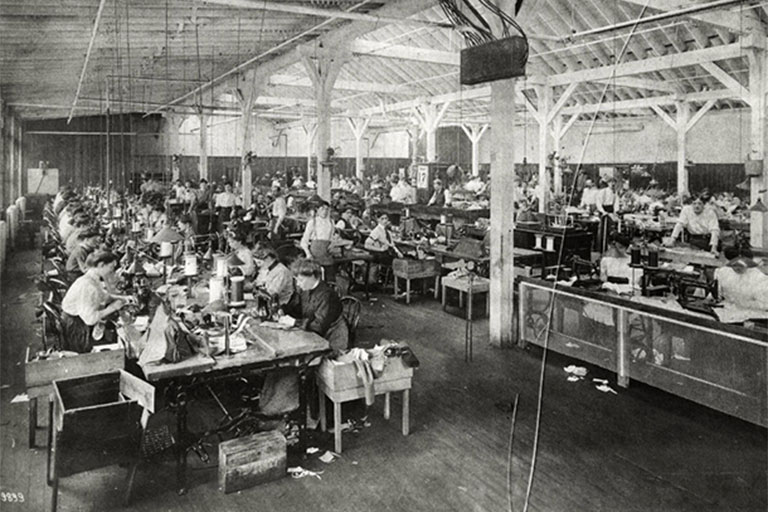
Understanding immigration, past and present
With threats against Asian Americans on the rise and an ongoing crisis at the southern border, IUPUI anthropologist Susan Hyatt is shedding light on today’s immigration challenges by studying Jewish immigrants of the early 20th century.
Read more about Susan Hyatt's work
Assessing inequities in early childhood intervention
IU researcher Katie Herron is exploring inequities with respect to First Steps, the state of Indiana's early intervention system for young children with developmental delays or disabilities that serves over 20,000 families each year.
Read more about Katie Herron's work
Community science for kids
The Bookworms community science project gets youth involved in science in their own backyards by engaging them in collecting soil and worm samples for analysis. Participants get a voucher for a book when they submit. The project is led by IUPUI Ph.D. student John Shukle.
Read more about the program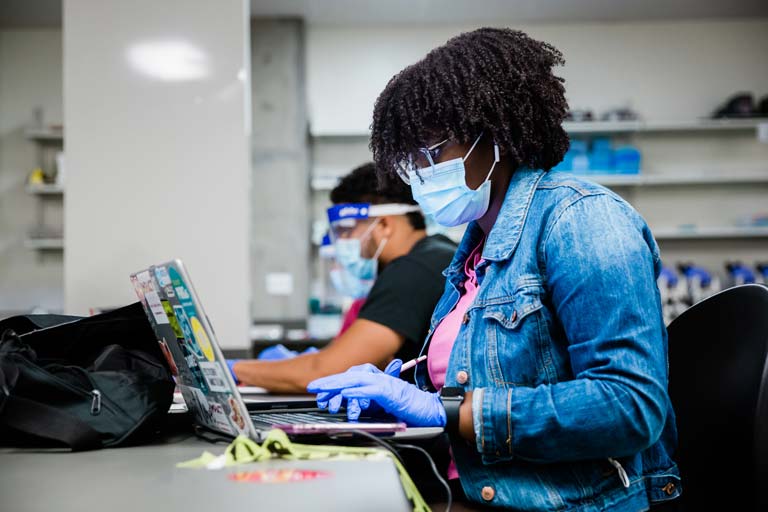
A racial trust deficit in higher ed
A new report from IU's Center for Postsecondary Research found that Black undergraduates trust college leaders significantly less than their white peers, and that the pandemic caused a slight drop in trust in administrators among all students.
Read more about the findings
BIPOC prosecutors and criminal justice reform
Inspired by the experiences of Kamala Harris, an IU Bloomington criminal justice professor is studying the role of BIPOC progressive prosecutors in criminal justice reform efforts. (Photo by Gage Skidmore)
Read more about the researchFeatured research centers
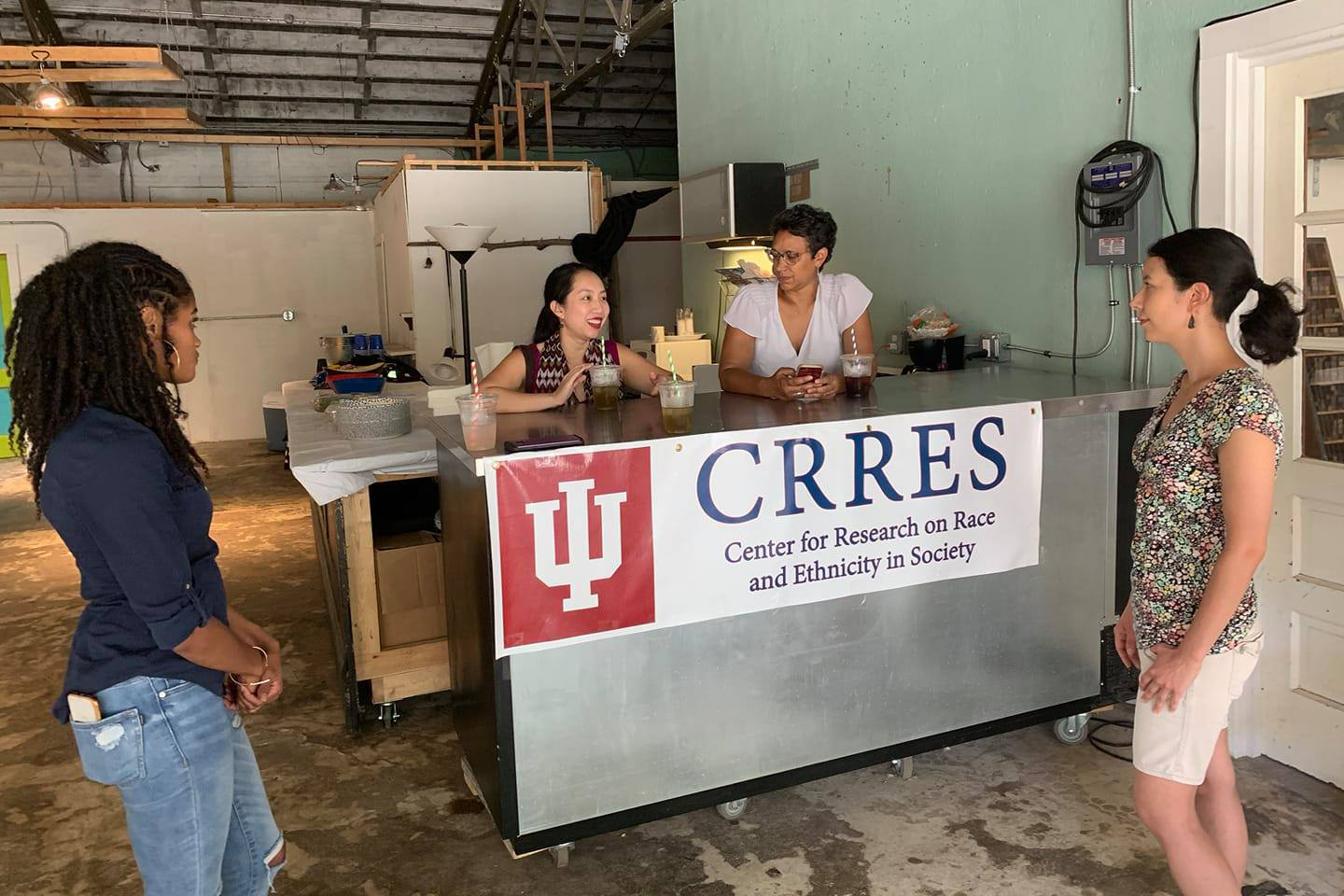
Center for Research on Race and Ethnicity in Society
The Center for Research on Race and Ethnicity in Society at IU Bloomington promotes research on race and ethnicity, bringing together scholars across interdisciplinary units for dialogue and collaboration, and training the next generation of scholars on race and ethnicity.
Learn more about the Center for Research on Race and Ethnicity in Society
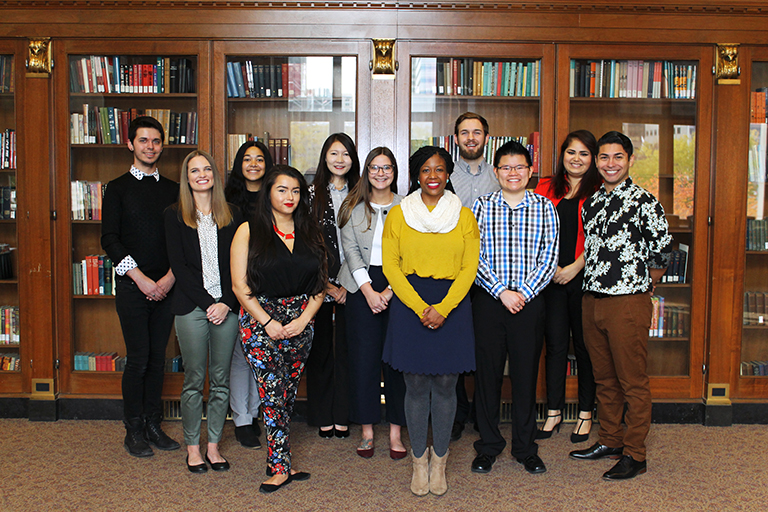
Center for Research on Inclusion and Social Policy
The Center for Research on Inclusion and Social Policy, a part of the Public Policy Institute in the O’Neill School of Public and Environmental Affairs at IUPUI, examines systemic issues at the intersection of social policy and equity. Their findings help policymakers, local organizations, and residents make informed decisions in the face of disparities and inequities.
Learn more about the Center for Research on Inclusion and Social Policy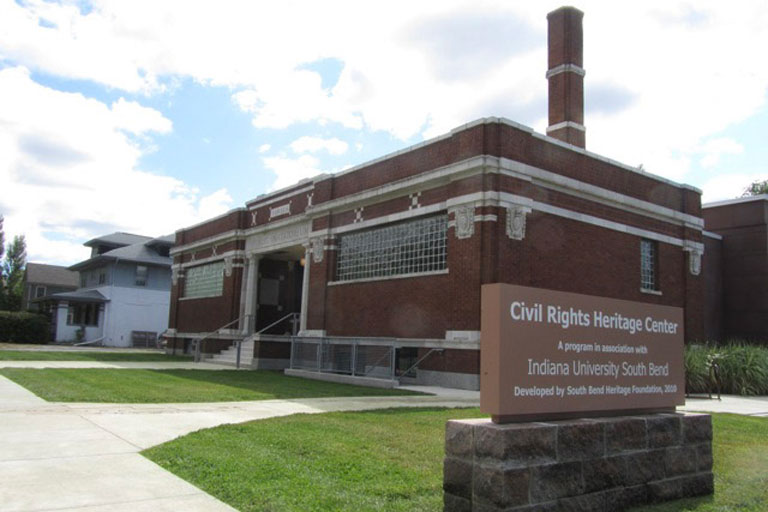
IU South Bend Civil Rights Heritage Center
The Civil Rights Heritage Center at IU South Bend is a meeting space for university and the community, hosting public events on issues and concerns of local and national importance, serving as a community resource for local grassroots activism and as a living museum that simultaneously preserves and honors past struggles for civil rights and social justice in the Northern Indiana region.
Learn more about the IU South Bend Civil Rights Heritage CenterMore about the Center for Research on Race and Ethnicity in Society
Description of the video:
[Music plays]
[Woman seated next to window appears on screen]
Woman speaks: CRRES was started in 2012
[IU logo and words Dina Okamoto, Director, Center for Research on Race and Ethnicity in Society appear at bottom of screen]
Dina Okamoto continues to speak: to really address the needs of graduate students and faculty of color who are doing research in the area of race and ethnicity
[Image of Dina Okamoto’s office door sign appears on screen]
and also to kind of promote and amplify the research of our
[Video switches back to Okamoto seated in front of window speaking]
affiliates. We also want to provide resources and information for the rest of campus and we're always looking for new people to affiliate.
[Okamoto seated at her computer, working in her office]
So it's not as though we just do work for our affiliates
[Okamoto seated in her office, smiling and nodding toward someone off camera at left]
we're campus-wide and we just want to provide resources
[Okamoto seated in front of window speaking]
and information and again amplify the research.
[Video switches to another woman seated in front of a window speaking; IU logo and words Michelle Moyd, Assoc. Director, Center for Research on Race and Ethnicity in Society appear at bottom of screen]
One of the projects that we've tried here in collaboration with the Institute for Digital Arts and Humanities is what's called a History Harvest. Which is
[Screen shows History Harvest website with “I am worthy” button displayed on screen]
bring objects that are important to them have them digitized and then have those
[Michelle Moyd seated in front of window speaking]
kind of put into a website which becomes a digital repository that people can use both to preserve their histories and it also
[Image on screen widens to show various objects from History Harvest, including button, plate, keychain, coffee drink, and more]
becomes a place where researchers can see those objects as
[Moyd seated in front of window speaking]
Sources, as ways of getting at people's histories.
[Video returns to Okamoto seated in front of window speaking]
The CRRES postdoc program is one of one of our many
[Image of woman taking notes on tablet in her lap]
successful programs.
[Okamoto seated in front of window speaking]
We love this program because it's really targeted at scholars from
[Okamoto is seated in her office in front of computer on desk and is speaking to Moyd, who stands in office doorway]
underrepresented populations to come to Indiana to do their research when
[A Black man takes a seat in front of a laptop on a table and opens a binder]
they otherwise may not have thought about Indiana at all as an option for them.
[Image of exterior of Karl F. Schuessler Institute for Social Research building on the IU Bloomington campus]
It's also about collaboration and about building community and I think
[Okamoto seated in front of window speaking]
that it's just been a real joy to work with these postdocs. I do
[Video switches to image of Moyd seated in her office working on her computer]
think looking forward what we're really interested in is to
[Okamoto seated in front of window speaking]
make connections with other campuses within the IU system but also for CRRES to make
[Image of books and CRRES signs spread out on a table outdoors for display]
connections with other units again
[animated map of Indiana, with IU campuses appearing one by one]
at Bloomington, at IUPUI. To be able to put together larger projects
[Video returns to Okamoto seated in front of window speaking]
that will hopefully have a greater impact.
[Screen fades to black, CRRES logo appears, crres.indiana.edu URL appears; logo and URL fade to black]
[Music ends]

